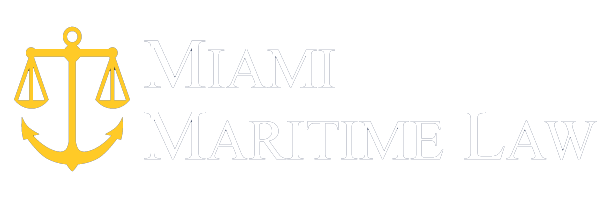
“WHAT IS A DEPOSITION?”- A BRIEF DESCRIPTION OF THE PROCESS
Your Deposition is one of the most important parts of the Discovery process and can affect your case in numerous ways. Prior to being deposed, we recommend that you are properly prepared and comprehend every imperative aspect as that same preparation can be quite valuable to your case and its outcome. When notified of a Deposition, it is common for a client to not know just what exactly a Deposition is. A Deposition is a rather important key most commonly used during the “Discovery” phase of a lawsuit. All parties involved in a lawsuit, through their attorney(s), are provided with a period of time after a suit is filed to discover all of the facts of a case in order to properly prepare for a trial. Depositions, along with the taking of Interrogatories, questions that must be answered with respect to the case under oath, are two of the most commonly used methods in the Discovery process.
Before any questions are asked by the neutral Court Reporter during a Deposition, the witness, you in this case and also referred to as the Deponent, is sworn to tell the truth. Attorneys for both sides of the case are in attendance and counsel for the opposing party will be asking you the questions all while the Court Reporter is typing everything down in what will later be printed out into a full Deposition Transcript. Said transcripts can later be admissible in a Court proceeding. This also allows for the opposing counsel to have your testimony committed to writing.
WARNING: Everything you say will be held against you, and it is the opposing attorney’s job to get you to say something that will reduce the damages/amounts sought or deny or limit coverage or liability for your case and/or any claims made by you. Keep in mind that your Deposition is not in any way meant to benefit you; it is for the benefit of the opposite side. You must resist the urge to tell your story, vindicate yourself or justify your actions. It is very important that you supply brief answers to the questions and do not volunteer information. Therefore, listen carefully to each question asked, think before answering, and answer concisely with “YES,” “NO,” “I DON’T KNOW,” or “I DO NOT RECALL” if at all possible.
Depositions are not a trial. Depositions are proceedings usually taken in a court reporter or an attorney’s office, and the Judge is not present. It is customary that they last anywhere between three (3) and six (6), sometimes less. The scope of questions is unlimited, and attorneys have the right to ask broad questions on topics that may seem irrelevant. Many topics covered in Depositions are not admissible at trial. You must answer all questions unless your attorney instructs you not to. This is another reason why we highly recommend that you listen closely to the complete question and take your time before answering.
The opposing counsel often plays the role of “Mr. Nice Guy” and although you should be polite, remember that his job is to attempt to help his/her client by using whatever necessary tactic he/she can think of in order to weaken your case. Do not trust him/her and remain mentally sharp at all times. Some opposing attorneys will be short and snappy with you, and at times, may seem hard-lined and relentless in questioning you. Despite their attempts, remember that he/she is NOT your friend. The only friend that you have in your case is YOUR attorney.
Your attorney is there to protect you from improper questions and will not ask you any questions. Remember: This is not the place to tell your story, but only to give facts as you know or recall them. If your attorney begins to speak, you must stop talking. If a discussion between counsel arises, you are to remain silent and be attentive to what is being said. If the event that your attorney makes an objection, please remain quiet until he/she advises you to respond. Your attorney is looking out for your best interest as opposed to the other party’s attorney who is looking out for his or hers, and for this reason, we ask that you do not answer if your attorney tells you not to regardless of how upset the other attorney may become or how harmless the question may seem to you.
GETTING READY FOR A DEPOSITION
PREP STEPS:
- Thoroughly read through this document and make certain that you comprehend it in its full entirety. If you have any inquiries with regards to it, rest assured that your attorney and his staff is here to assist in any way possible and in order to provide a better of the contents found within this explanation.
- Review the Interrogatories you previously provided answers to as the other counsel will more than likely use them at your Deposition. Therefore, we want to make sure that your answers completely match.
- Review the Pleadings and Motions that were previously filed and contact your attorney should any questions come to mind.
The other side has the right to ask you to bring documents to the Deposition. If you have not been asked to bring any documentation, do not volunteer to do so. However, if documentation has been requested, do your best to gather same even if it means that you must get them from a lockbox or a storeroom. It is recommended that you meet with or speak to your attorney a few days prior to the deposition and again at least thirty (30) minutes prior to the Deposition’s scheduled time so that you can review your documents with him/her. If you have not been asked to bring documentation, but you have documents you feel would be beneficial to your case, bring them and discuss them with your attorney.
IMPORTANT: Letters between you and your attorney and his/her staff, as well as documents prepared in connection with the lawsuit are ATTORNEY CLIENT PRIVILEGED & CONFIDENTIAL material and should never be produced. These documents may be privileged under the attorney-client privilege or work-product privilege. If you produce them, you may forfeit the privilege for all of them. If any documents requested by the other side are privileged, let your attorney know immediately.
Your attorney or his staff will meet with you either in person or telephonically before your Deposition to properly prepare you. Do not hide anything from your attorney. You must be totally truthful with your attorney and that includes his/her staff as you will not be fully protected if there are things that the other side may know that your attorney and/or his/her staff has not been made aware of before the scheduled Deposition. Be candid in all respects and rest assured that everything you tell your attorney and/or his/her staff is ATTORNEY CLIENT PRIVILEGED & CONFIDENTIAL. Think of any bad information about the case and assume that the other side is aware of this information and advise your attorney of same about it. If we know about something we can discuss it and strategize how best to move forward to protect you.
THE DEPOSITION ITSELF-“DO’s & DON’Ts”
ATTIRE: Dress neatly. The best outfit is comfortable business attire. With nothing flashy, nothing offbeat, nothing dirty, nothing sloppy. Remember, the other attorneys are evaluation you as a witness and what type of impression you will make on a jury at trial.
RESPONSES: It is imperative and your duty to produce all of the requested documents and answer every question in as truthfully. Prior to answering a question, look straight at the attorney asking the question, listen carefully, pause at least two or three seconds to think, and then give your short, concise answer politely and calmly. For the majority of the questions, “yes sir,” “no sir” or “I don’t know” is sufficient. If you speak more than three sentences, you have probably said too much. Remember to use this tactic with each and every question so that every answer is formal and controlled and you are controlling the tempo of your Deposition.
CONDUCT: Always try to be polite. Your conduct and demeanor may be more important than the answers you give so maintain your composure by remaining calm and not demonstrating a sense of nervousness. (You will likely be nervous, just try to not show it.) Always respond courteously by referring to the attorneys as “Mr.” or “Ms.” Please be sure to speak up positively and with assurance.
QUESTIONS: Feel free to consult with your attorney if you want to take a break or something is going on that you do not understand. You may ask the opposing counsel, “May I consult with my attorney?” You may then either talk privately at the table or go outside to discuss items with your attorney. Do not be afraid to ask your attorney questions, but keep consultations to an absolute minimum. Your attorney cannot tell you how to answer a question and you must answer a question presented to you prior to taking a break or consulting with your counsel. Even if your attorney knows an answer, the attorney cannot answer on your behalf.
HONESTY IS THE BEST POLICY: Your testimony must be truthful. Guessing or speculating is not truthful Please remember, tell the truth, the whole truth, and nothing but the truth, but only in response to questions, and with short answers. If you do not tell the truth, you could be subject to criminal prosecution for perjury. If you are caught not telling the truth – even if this is unintentional, your credibility will be put into question whilst damaging your case. Again, every question must be answered truthfully.
LESS IS BEST: Answer only from your personal knowledge. Never volunteer an opinion unless specifically asked to do so. Never guess or speculate. Guessing or speculating is not truthful. Do not do it. Don’t allow for the opposing counsel to fool you into making statements outside of your personal knowledge or about something you do not remember.
TESTIMONY: It is important that you provide a testimony in your own words. Do not let opposing counsel put words in your mouth. Stay with the version of the facts as you know them. One of the tactics used by attorneys is “Well, is it fair to say that…?” If he/she uses this tactic and attempts to summarize parts of your testimony, listen carefully and do not agree unless it is exactly true in all respects; if not, state that you do not agree with his/her summary.
ZERO INTIMIDATION: Do not allow yourself to be intimidated. The opposing attorney may make an insinuation or express an opinion that you are not telling the truth. This is an old trick and you should not fall for it. He/she may say something in lines of, “Do you mean to tell me that you are willing to sit here under oath and swear to that?” Remain calm; look him/her in the eyes and say, “I have just testified to the fact under oath.” The opposing attorney may speak with a raised voice and seem hateful, but your attorney will not allow for you to be badgered or let things get out of control.
CAUTION OF QUESTIONS ASKED: Be careful of questions dependent of your memory. If you are asked about something that happened long ago and you do not remember the date or time, just say so and do not guess. No one expects for you to recall every facet of your life. If you are pressed for dates, you can reply, “To the best of my knowledge, it was around that time.” If you do not recall, say so. Often, the truthful answer to a question begins with “To the best of my knowledge, at this time.” If you do not know, say so. Again, do not speculate and do not guess. If you do not know the answer to a question, just say “I do not know.” Please comprehend that it is quite important that you do not assume anything. Old tricks in the book are often used by opposing counsel. One such trick includes him/her pulling out a piece of paper, reading it to himself/herself and then asking you if you recall writing a letter to [NAME] that said [FACTS]. Do not be fooled into admitting something of which you are unsure of. Do not say, “I guess so” when the truthful answer is “I do not remember writing such a letter.”
KEEP IT SHORT & SWEET: Do not give long, rambling answers. The opposing attorney will always gain an advantage if you talk too much. Never ask to explain your answer before giving it. And do not explain your proper “yes sir” or “no sir” answer either. Do not ever volunteer unsolicited information. For example, you are asked to “State the highest degree of education you have earned.” Many witnesses respond: “Well I graduated high school and then went to college for two years.” This is volunteering information. The correct answer is: “a high school diploma.” No matter how harmless it may seem, you will hurt your case and strengthen the other side’s if you volunteer information.
Do not give an opinion unless asked. Answer with facts and never give your opinion or belief unless asked for it. Again, this is volunteering information and doing same can hurt your case.
Complete your answers. If you do not have a long answer, and the other attorney interrupts you when providing your response, you should politely insist on finishing your entire answer. Just state that you were not through and insist on being allowed to finish it.
HANDLE WITH CARE: Use care with documents. If you are asked about a certain document, you should ask to see it before answering. Never refer to a document to refresh your memory without first discussing it with your attorney. In some states, if a deponent is asked a question and stops to look at a document to refresh his/her memory, the document must be disclosed even if it is privileged.
STAY ALERT: Always keep your guard up. Everyone gets nervous about being deposed. It is only natural. Sometimes a deponent will begin to relax as the Deposition progresses and they may even actually enjoy being the center of attention. Avoid this feeling. It is dangerous and leads to your forgetting the rules outlined in this article.
Remain alert, be on guard, sit up straight, and remember to:
- Look and listen,
- Pause and think; and
- Answer briefly.
KEEP CALM: In order to avoid having the opposing counsel talk you into hurting your case, it is best to remain being polite, courteous and keeping your guard up. Do not allow yourself to be provoked, angered, or becoming upset.
Please remember that nothing is “off the record” during the course of the Deposition. The Court Reporter is present to take down every word. An attorney may ask you for an answer “off the record,” but do not fall for it. The only thing off the record will be discussion among attorneys when the reporter has been instructed to stop recording.
“THE DEPOSITION IS OVER. NOW WHAT?”
PRODUCE DOCUMENTS: If agreed, provide information. During the Deposition, you and your attorney may agree to produce something to the other side. Locate it immediately after the Deposition and deliver it to your attorney as soon as possible.
REVIEW YOUR TRANSCRIPT: Correct errors within the transcript. You will have a limited time to make any corrections after the Court Report has typed the transcript. Read it thoroughly and make all necessary corrections. If you do not do so within the time period, which may be as few as twenty (20) days, you will not be able to correct it later and you will be stuck with it at time of trial. Follow your attorney’s advice regarding making any corrections.
Keep in mind that answers may need to be supplemented. In some states, you are required to supplement any answers you gave at a Deposition. If you are asked a question in a Deposition, and your answer later changes, you must let your attorney know. For example, you may be asked for names of witnesses and after your Deposition you learn of another witness. You must give that new information to your attorney immediately.
Review your Deposition before trial. Make sure that you re-read your Deposition testimony before you get to trial. Most cases settle and never reach trial, but not all cases. If you are in fact going to trial, it is quite vital that you know everything you have previously said under oath, whether in a Deposition or in your Interrogatories.
We surely hope that this guide has been able to assist you in preparation of your Deposition, however, should you have any questions pertaining to same, please do not hesitate to contact us and we will make every effort to provide additional clarification.


